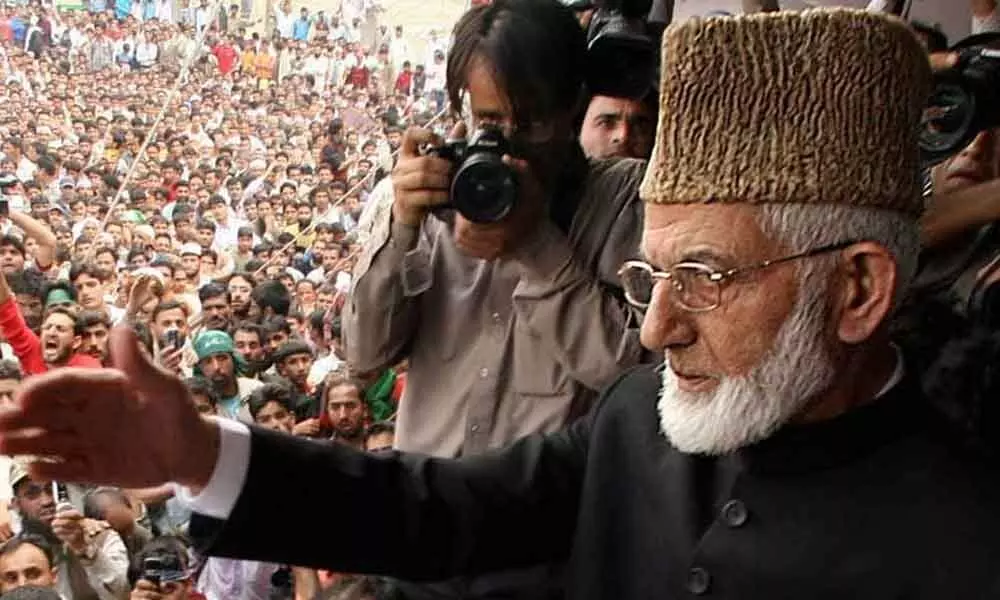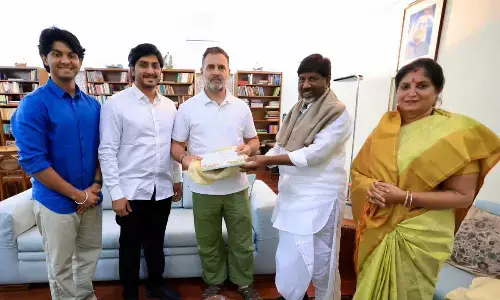Pansies to happily bloom in Kashmir

Syed Ali Shah Geelani
It was in spring many years ago when pansies bloom in Kashmir and the end of the cold season begins that I met Syed Ali Shah Geelani at his residence in Srinagar's Hyderpora for an interview.
It was in spring many years ago when pansies bloom in Kashmir and the end of the cold season begins that I met Syed Ali Shah Geelani at his residence in Srinagar's Hyderpora for an interview. While entering the cave-like entrance, it was a pleasant sight to see a small garden with blooming pansies. Each of them swayed in the cold breeze, but the patterns on them were such that each one of them seemed to be angry. I jokingly mentioned this to Geelani, and his answer just ended my laugh, "They are angry because they are subjugated."
Syed Ali Shah Geelani (1929-2021), a hawk, shrewd, 'Saheb' for some and a monster for many, very well knew how to manipulate sentiments and situations. A teacher-turned-politician-turned-separatist who kept both India and Pakistan on tenterhooks and swayed to one side or the other depending on his need and greed.
Geelani had the ability to draw in the youth, and they easily became his tools. He motivated the youth to pick up guns, pelt stones and die. He presided over a three-decade separatist movement and terrorism in the Valley. His was an 'era' that saw people dying, ethnic cleansing of minorities, thousands getting orphaned and Kashmir losing its happiness, peace and harmony. He was instrumental in founding the All Parties Hurriyat Conference in 1993 which was formed at the behest of Pakistan and some pro-Pak elements in the US.
For decades, Geelani delivered for Pakistan. His "Kashmir banega Pakistan (Kashmir will become Pakistan)" agenda based on the reasoning that Kashmir, as a Muslim majority region, should go to Pakistan, lured thousands. For him, the terrorists were Mujahideen who were just boys taking up arms because India was not holding a plebiscite.
He was instrumental in leading the agitation in Kashmir in 2008 against the state government's decision to transfer 100 acres of land near Amarnath cave to Shri Amarnathji Shrine Board for setting up temporary shelters for pilgrims. And, when terrorist Burhan Wani was killed, he spearheaded a pro-Pak movement.
Geelani was an Islamist who believed that Muslim Kashmir had no place in Hindu majority India and perhaps he was one of those behind-the-scenes who worked for the anti-Kashmiri Pandit sentiment in the Valley resulting in their exodus. He never condemned the killing of innocent Kashmiri Pandits or the violence against the minority women.
After the abrogation of Article 370, Geelani resigned from the Hurriyat. Some say the resignation was his last effort to express anger at Pakistan and his own leaders' failure to respond to the ending of special status to J&K, and some others say he perhaps realized that all that he had been doing in Kashmir was no longer worth it.
Whatever the reason, Geelani, once a mass leader in Kashmir, died in isolation and with him died the anger too. The pansies will continue to bloom and may be happy from now on.








